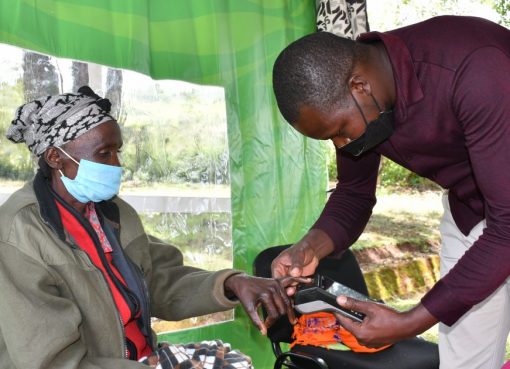The Kenyan Judiciary has launched a comprehensive Social Transformation Access to Justice (STAJ) Blueprint for the years 2023-2033.
The initiative is geared towards fostering internal capacity building and instituting reforms within the judiciary, with the aim of enhancing accountability, and service delivery and bolstering public confidence in the judicial system.
Speaking during the launch, Chief Justice Martha Koome emphasized the pivotal role of the plan in instilling a culture of accountability while adhering to constitutional principles and values.
She highlighted key aspects such as accessibility, transparency, accountability, inclusivity, shared leadership, cooperative dialogue, and social justice as the cornerstones of the STAJ Blueprint.
CJ Koome underscored the judiciary’s commitment to ensuring that justice becomes a daily reality for every Kenyan, regardless of socio-economic status, geographical location, or personal vulnerabilities.
Recognizing the existing barriers to accessing justice, she stressed the need to address geographical, economic, and structural challenges to achieve the Blueprint’s goals.
The STAJ Blueprint is poised to transform the judiciary into a caring and service-oriented institution, signaling a departure from a mere focus on dispensing justice.
According to CJ Koome, the judiciary’s renewed focus will include uplifting and empowering the people of Kenya, thereby fostering peace and harmony in communities.
“A significant aspect of the STAJ initiative is its vision of the judiciary as a connector of justice champions. The Blueprint aims to leverage the justice capabilities of Kenyans by promoting a multi-door approach to justice. This approach empowers individuals to resolve disputes through various means, including mediation, traditional (alternative) justice systems, conciliation, arbitration, and other dispute resolution avenues,” explained Koome.
Prime Cabinet Secretary H.E Musalia Mudavadi commended the strides made by the judiciary over the years.
He emphasized the need for the judiciary to affirm its readiness and commitment to scaling up services for all Kenyans. Mudavadi stressed that justice should not be a privilege but a fundamental right for all, guided by national values and principles.
“Kenyans expect high standards of jurisdiction as conferred by the Constitution and as prescribed by various statutes. Accessibility, efficiency, transparency, accountability, inclusiveness, shared leadership, cooperative dialogue, and social justice are among key fundamentals that should deepen the quest for justice, equality, and inclusivity, as well as enhance shared prosperity,” noted Prime Cabinet Secretary Musalia Mudavadi in his closing remarks.
The STAJ Blueprint stands as a symbol of the shared vision for a judicial system that is accessible, efficient, and responsive to the needs of the Kenyan people. The launch marks a significant step towards a more just and inclusive society, reflecting the judiciary’s commitment to social transformation through access to justice.
By Carol Mawia and Silus Waswa





